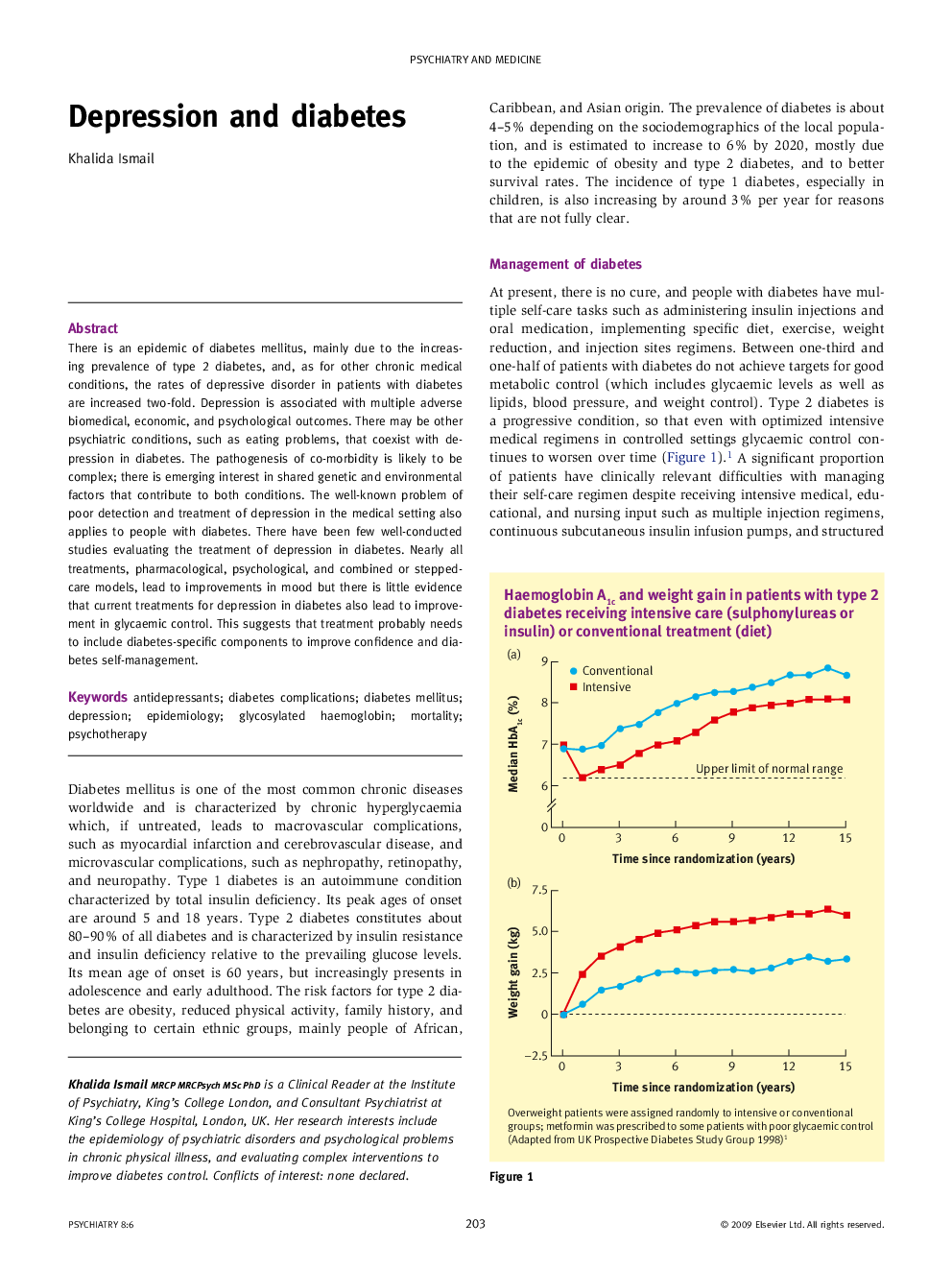| Article ID | Journal | Published Year | Pages | File Type |
|---|---|---|---|---|
| 4189870 | Psychiatry | 2009 | 5 Pages |
There is an epidemic of diabetes mellitus, mainly due to the increasing prevalence of type 2 diabetes, and, as for other chronic medical conditions, the rates of depressive disorder in patients with diabetes are increased two-fold. Depression is associated with multiple adverse biomedical, economic, and psychological outcomes. There may be other psychiatric conditions, such as eating problems, that coexist with depression in diabetes. The pathogenesis of co-morbidity is likely to be complex; there is emerging interest in shared genetic and environmental factors that contribute to both conditions. The well-known problem of poor detection and treatment of depression in the medical setting also applies to people with diabetes. There have been few well-conducted studies evaluating the treatment of depression in diabetes. Nearly all treatments, pharmacological, psychological, and combined or stepped-care models, lead to improvements in mood but there is little evidence that current treatments for depression in diabetes also lead to improvement in glycaemic control. This suggests that treatment probably needs to include diabetes-specific components to improve confidence and diabetes self-management.
